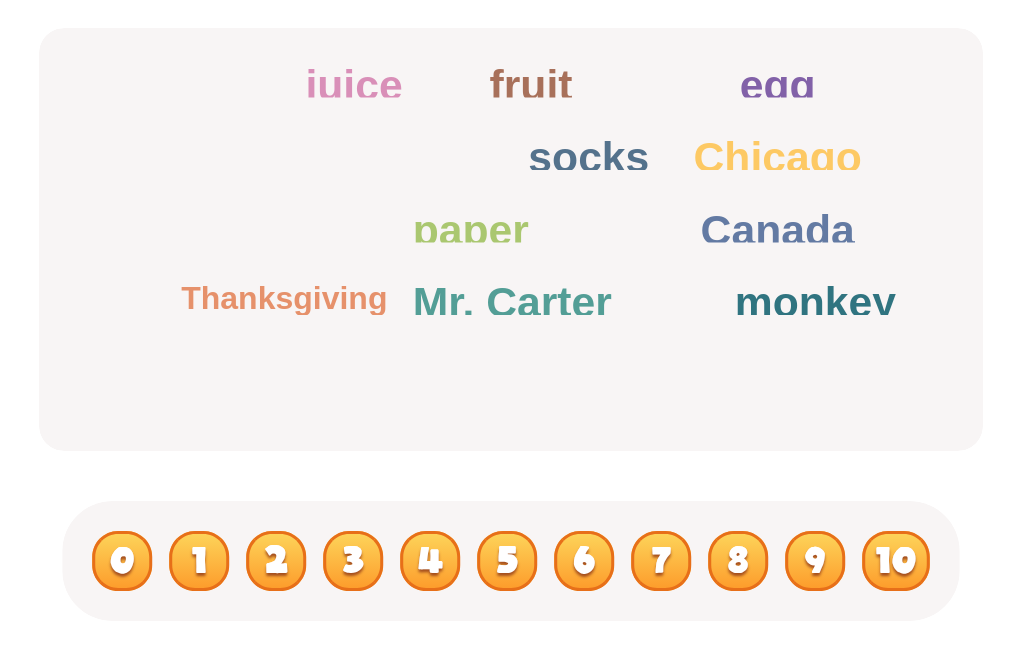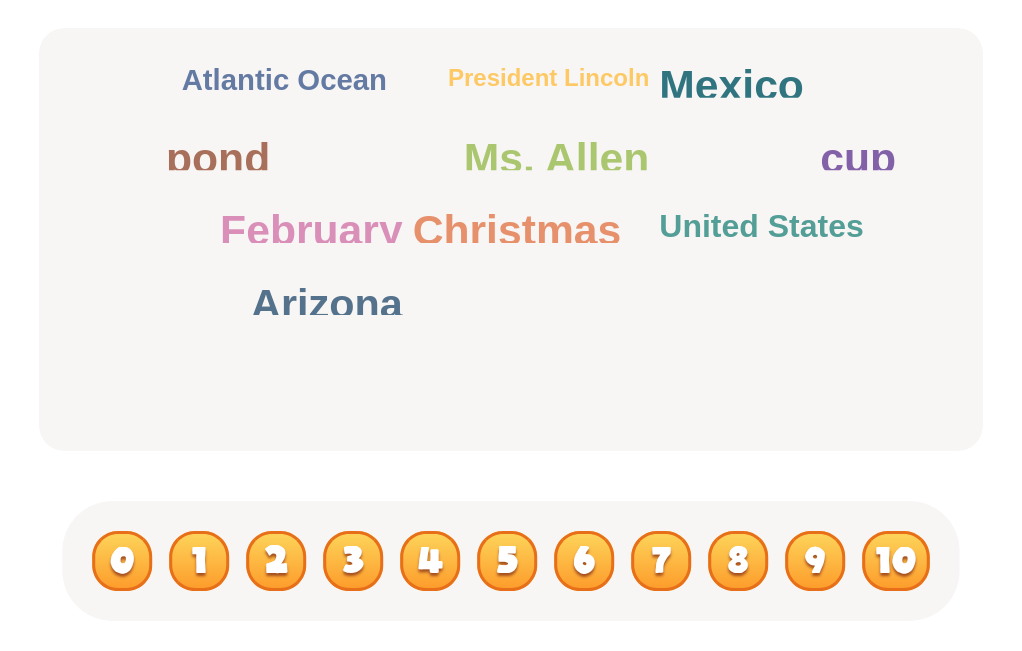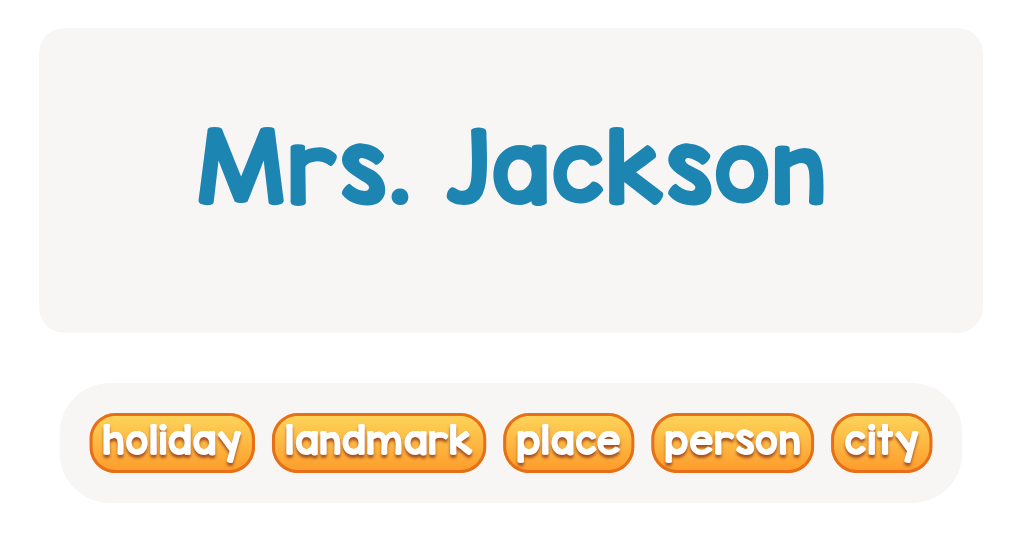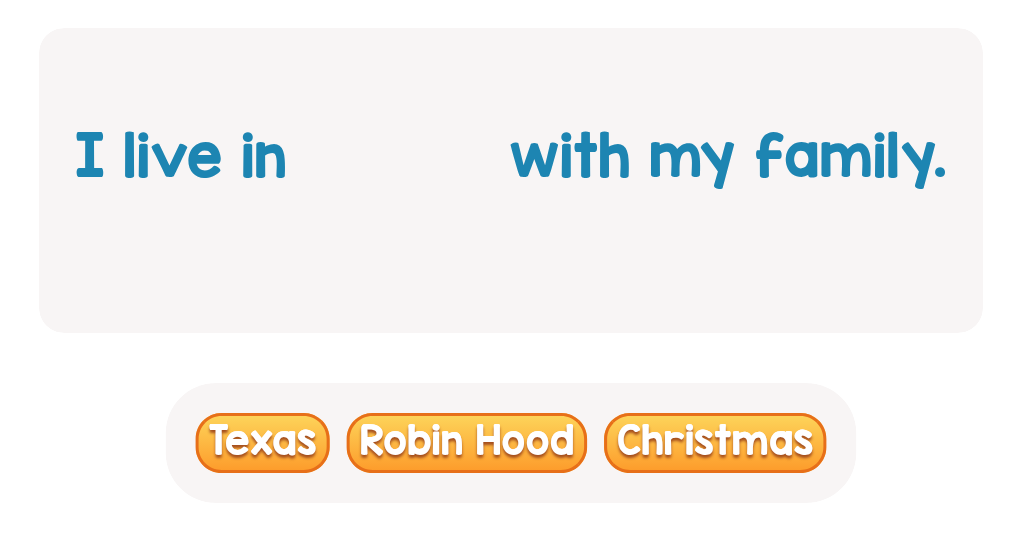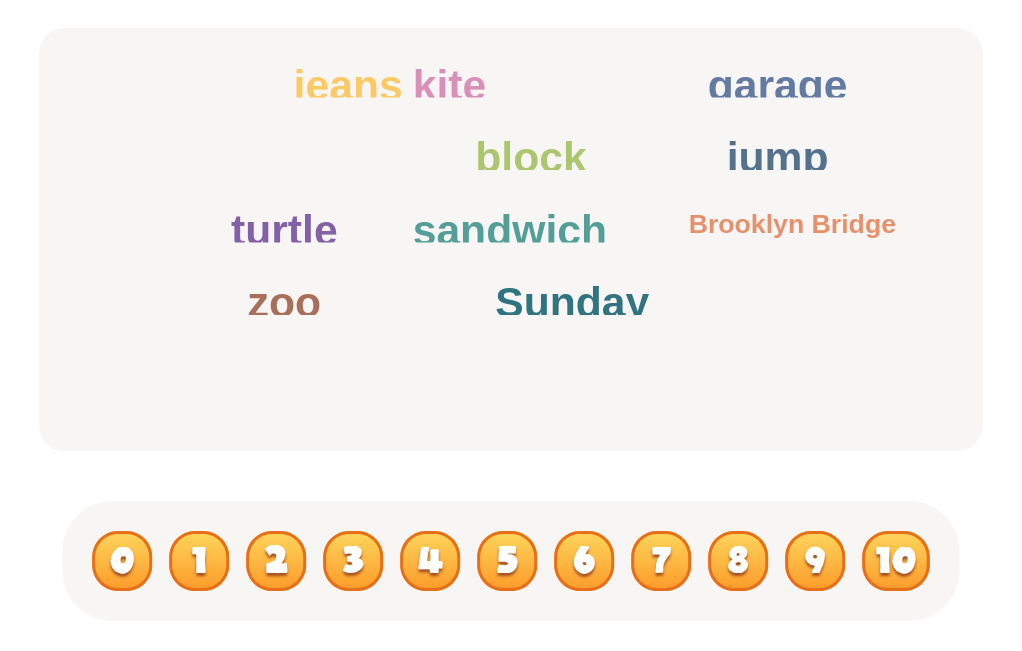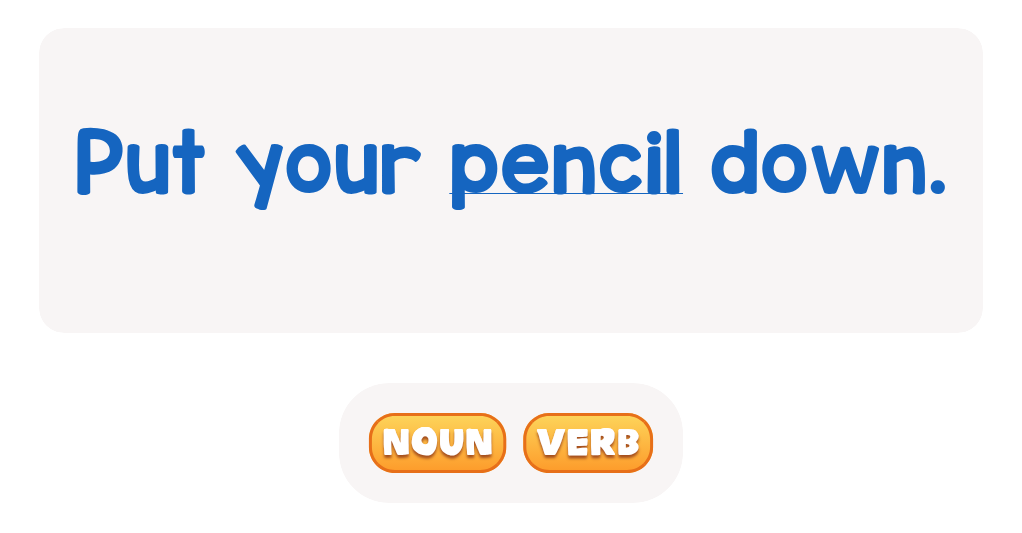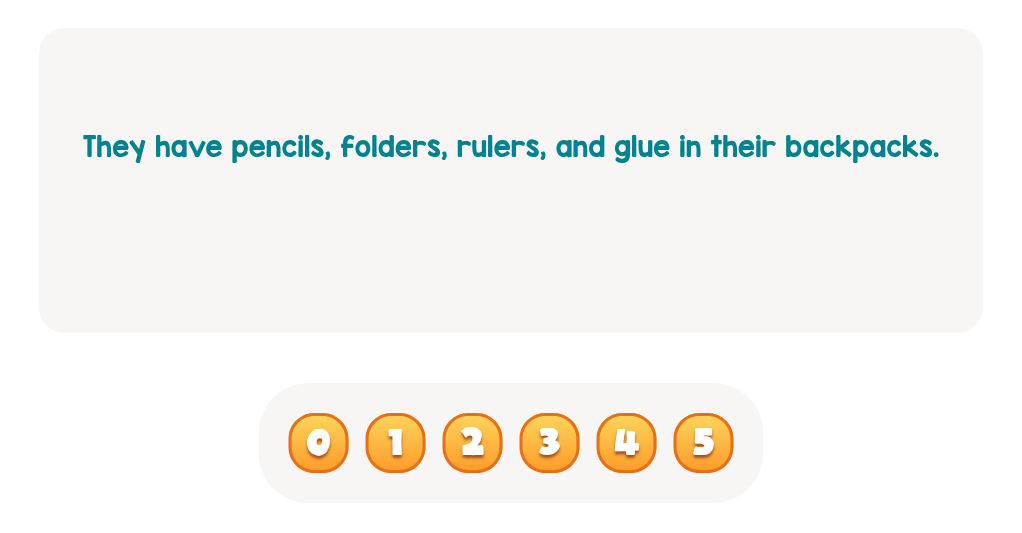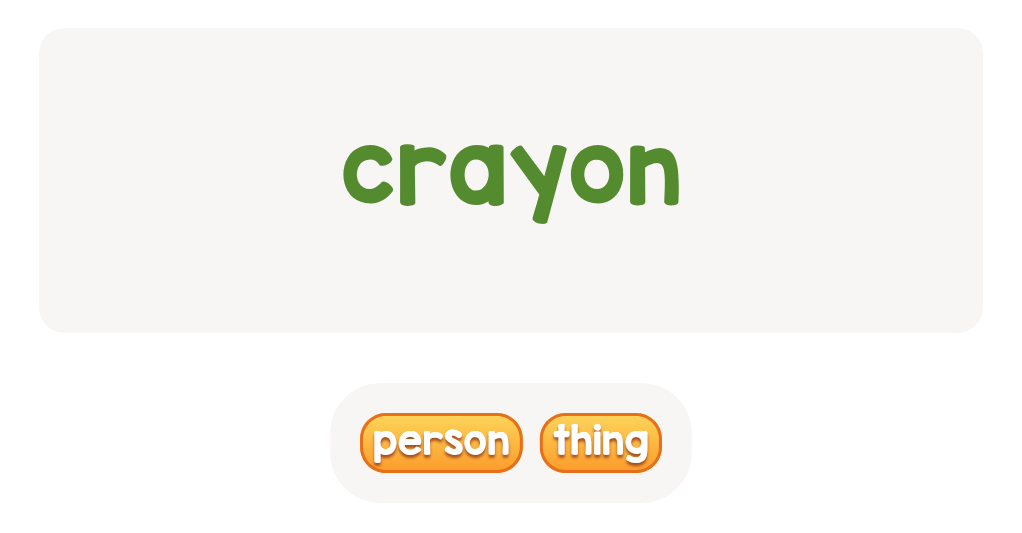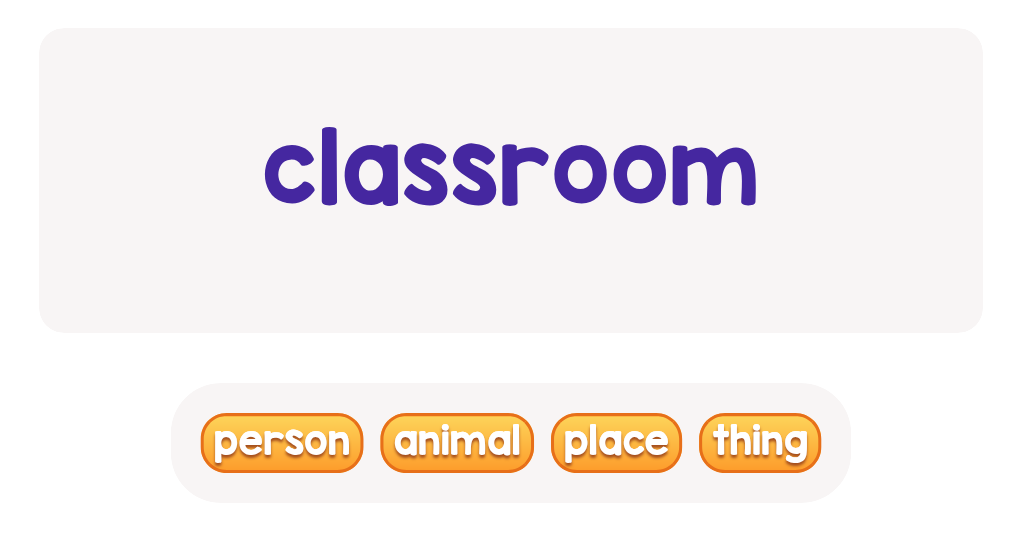Reading Skills Grammar Worksheets for Ages 6-7
6 filtered results
-
From - To
Enhance your child's reading skills with our engaging grammar worksheets designed specifically for ages 6-7. These resources focus on developing essential reading comprehension and grammar concepts through fun and interactive activities. Kids will explore punctuation, sentence structure, and vocabulary in a supportive environment, making learning both enjoyable and effective. Each worksheet aligns with educational standards, helping young learners build a strong foundation in literacy. With colorful illustrations and age-appropriate exercises, our Reading Skills Grammar Worksheets spark curiosity and promote a lifelong love for reading. Explore our collection today and watch your child's confidence and skills grow!
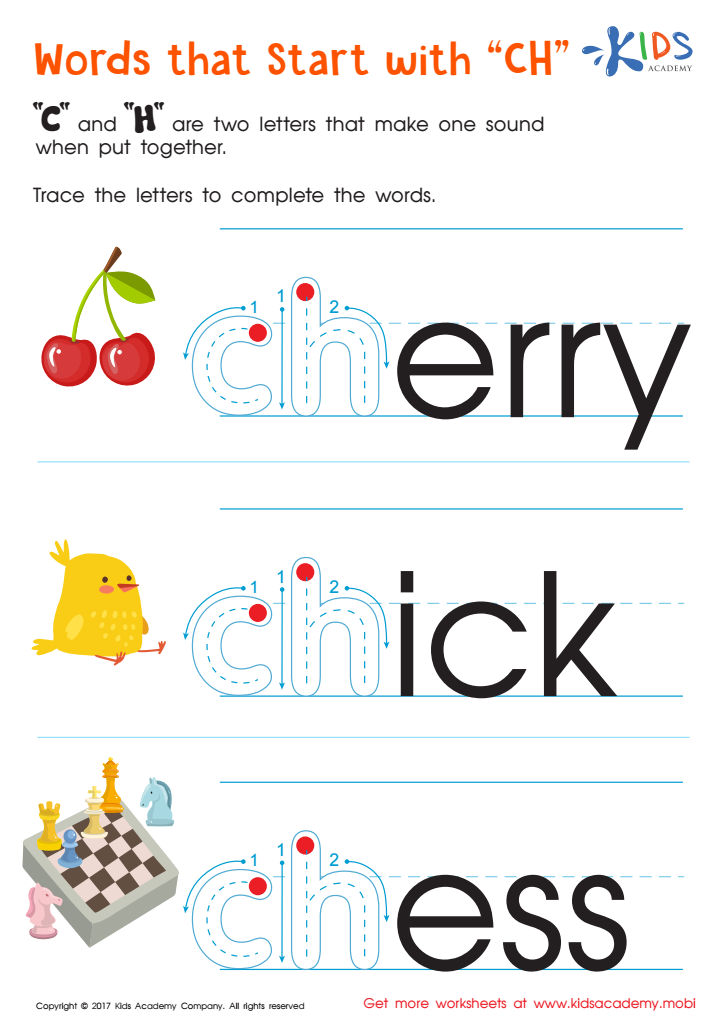

Words That Start with "ch" Spelling Worksheet
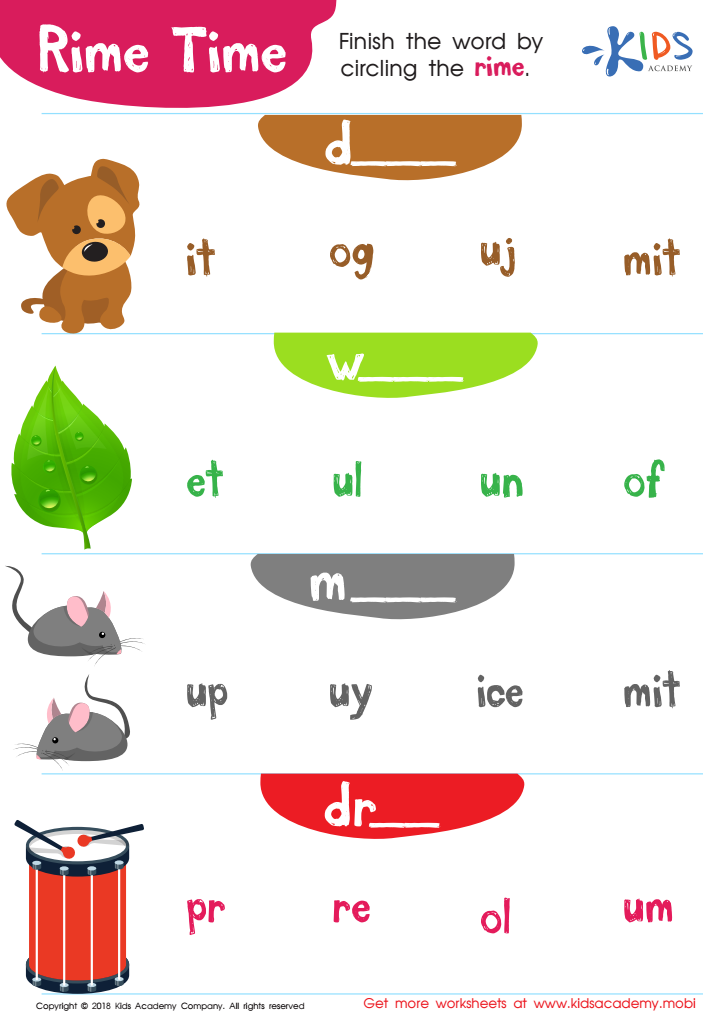

Rime Time Worksheet
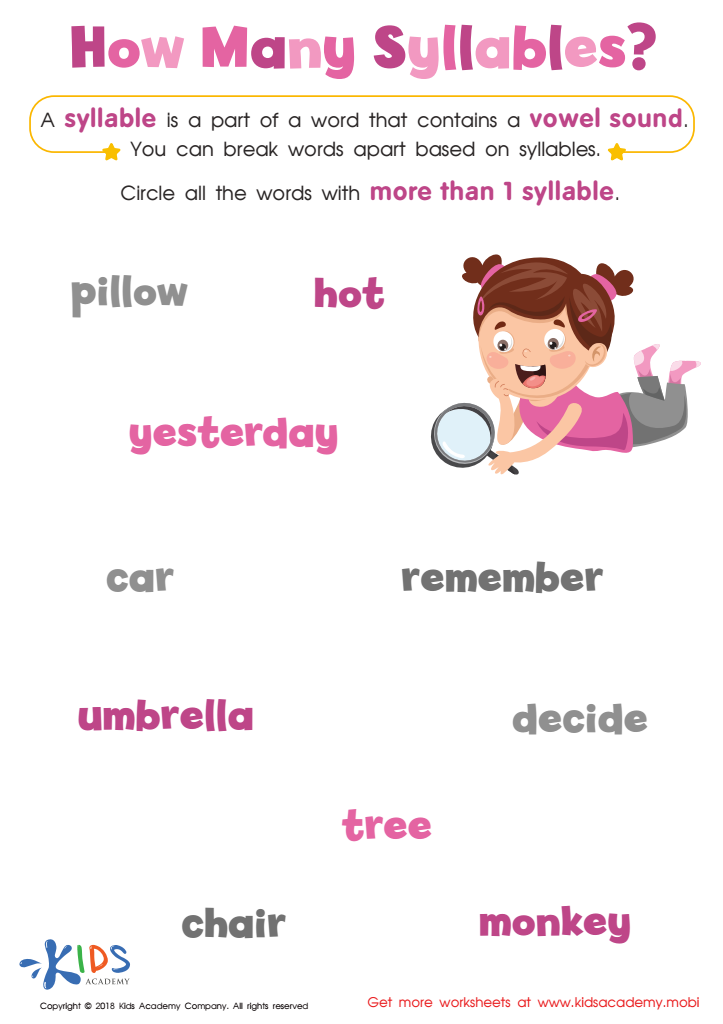

Reading: How Many Syllables Worksheet
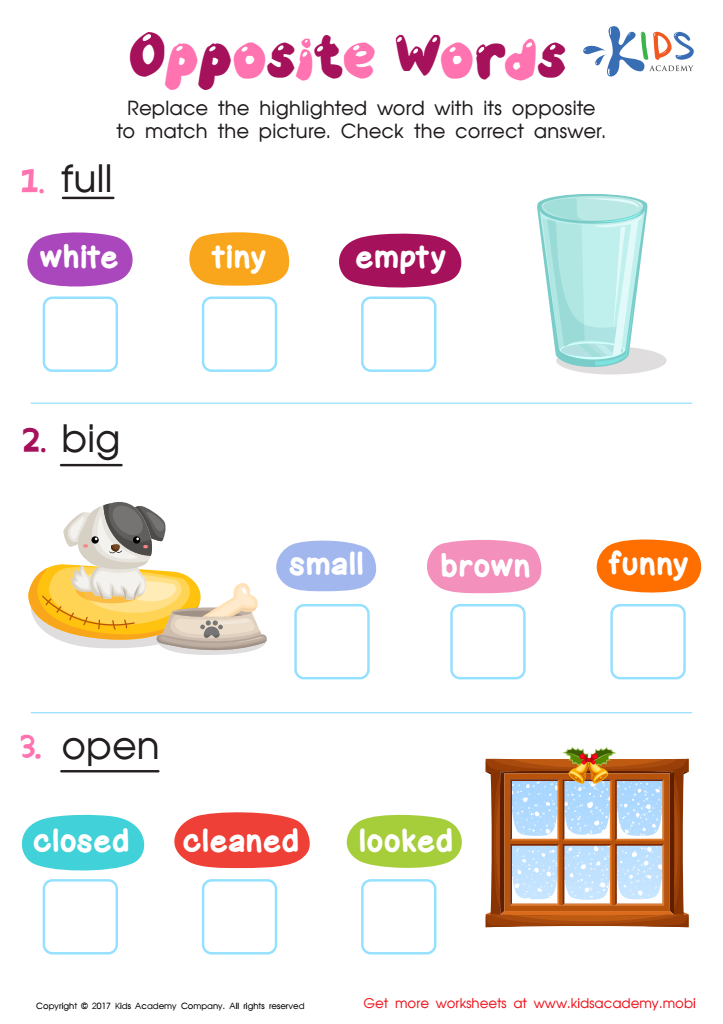

Opposite Words Worksheet
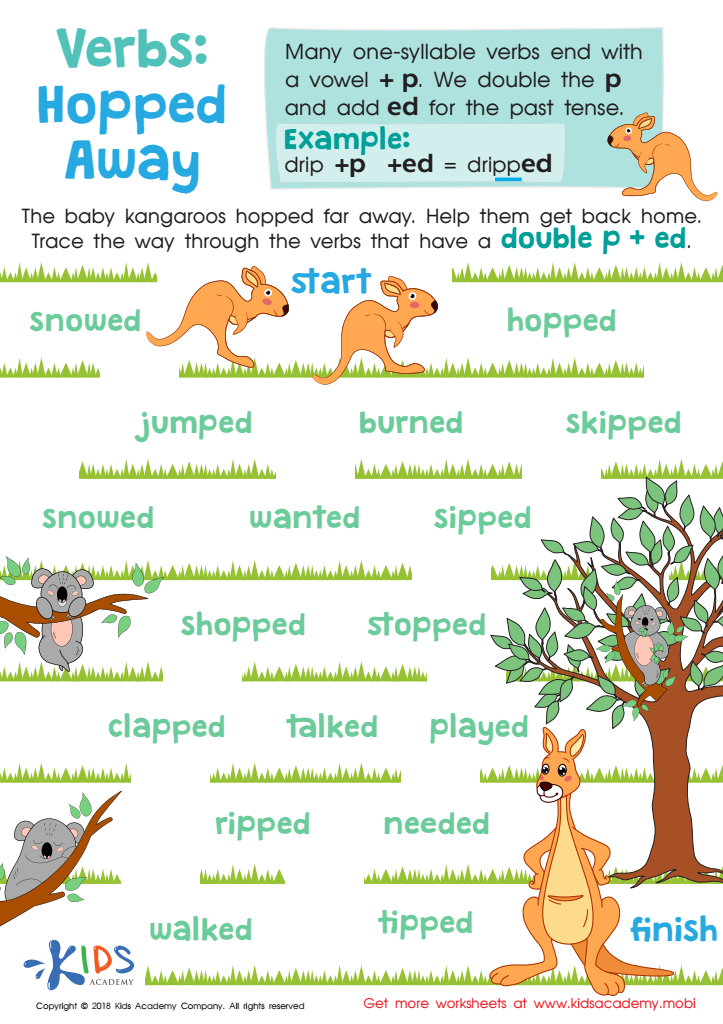

Verbs: Hopped Away Worksheet
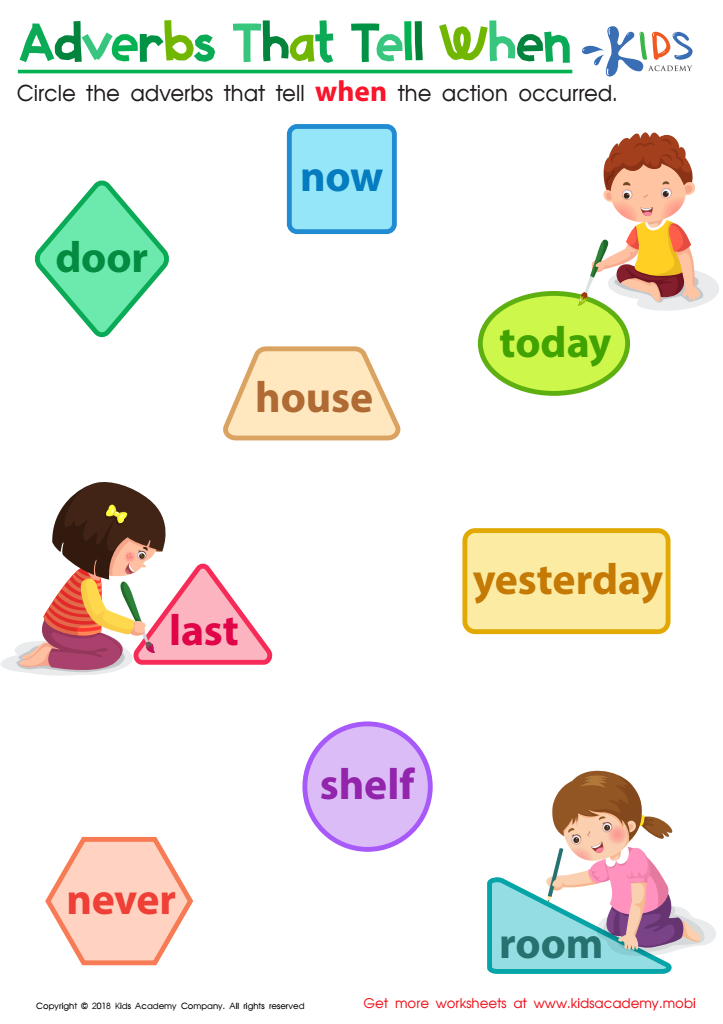

Adverbs That Tell us When Worksheet
Parents and teachers should prioritize reading skills and grammar for children ages 6-7 because this stage is pivotal in a child's literacy journey. At this age, children are transitioning from learning to read to reading to learn, making strong reading skills essential for academic success. Proficient reading helps them access new information and understand various subjects, fostering a lifelong love for learning.
Understanding basic grammar is equally important as it enhances communication skills. Grammar provides the structure that children need to convey their thoughts clearly and effectively. Teaching grammar alongside reading helps children make connections between words, sentences, and their meanings, setting a solid foundation for writing as well.
Furthermore, children who master these skills at an early age often experience increased confidence and engagement in school activities. As they recognize their abilities, it fosters a positive attitude toward education.
Lastly, varied reading experiences and grammar instruction encourage critical thinking. Children learn to analyze text, comprehend context, and express their ideas logically. By cultivating these essential skills, parents and teachers empower young learners to navigate and succeed in both their academic and personal lives, equipping them for future challenges.
 Assign to My Students
Assign to My Students
